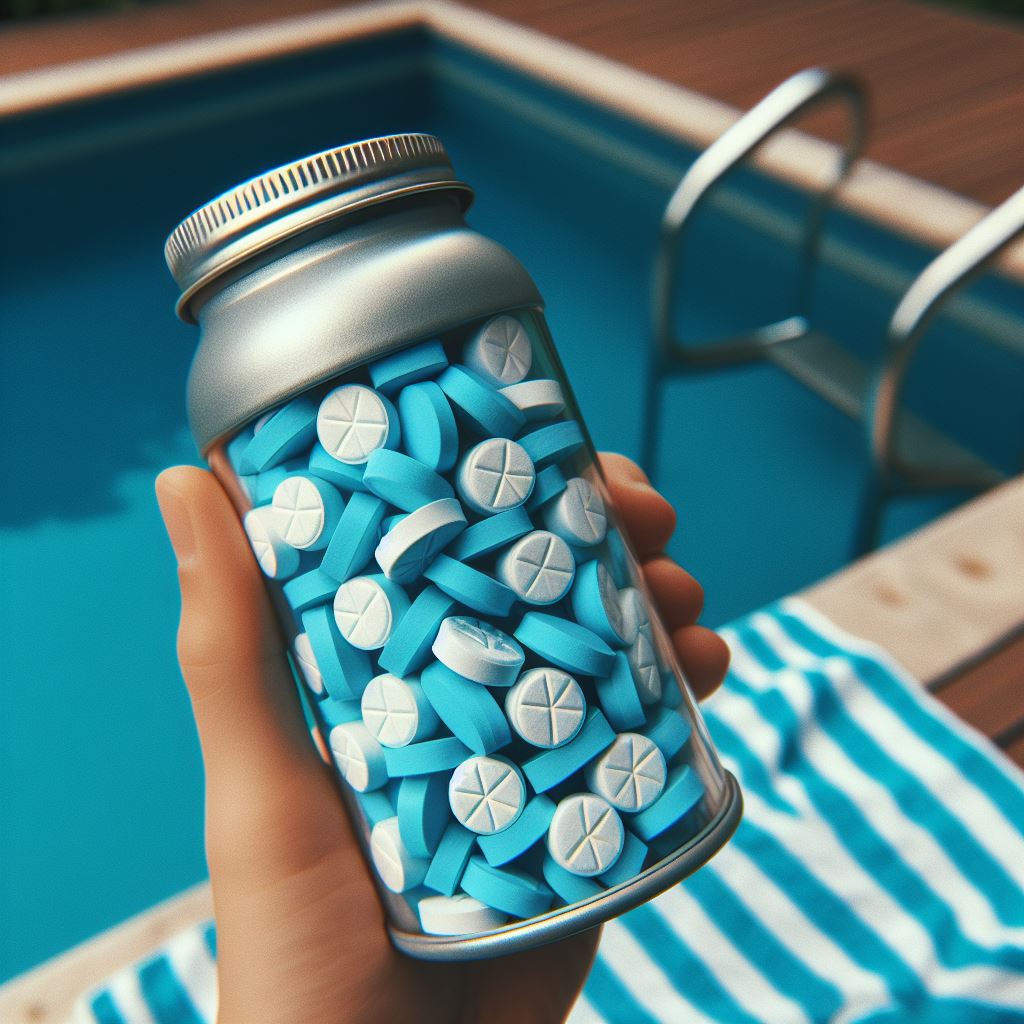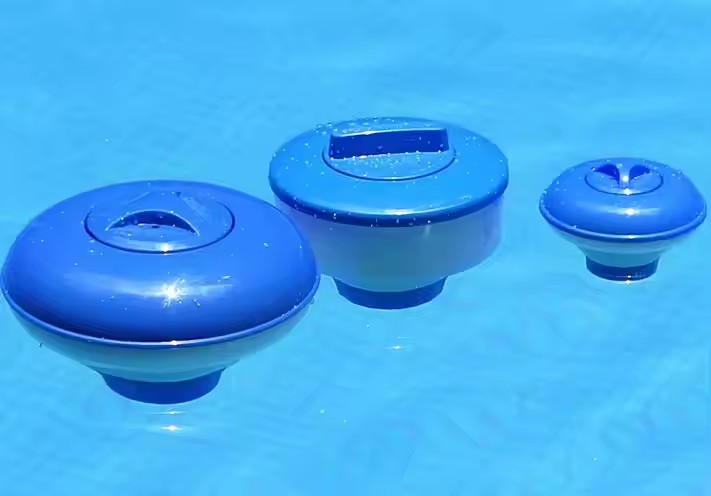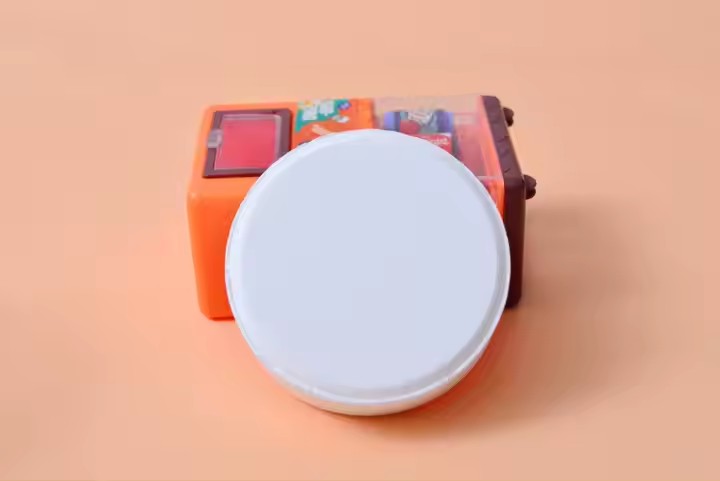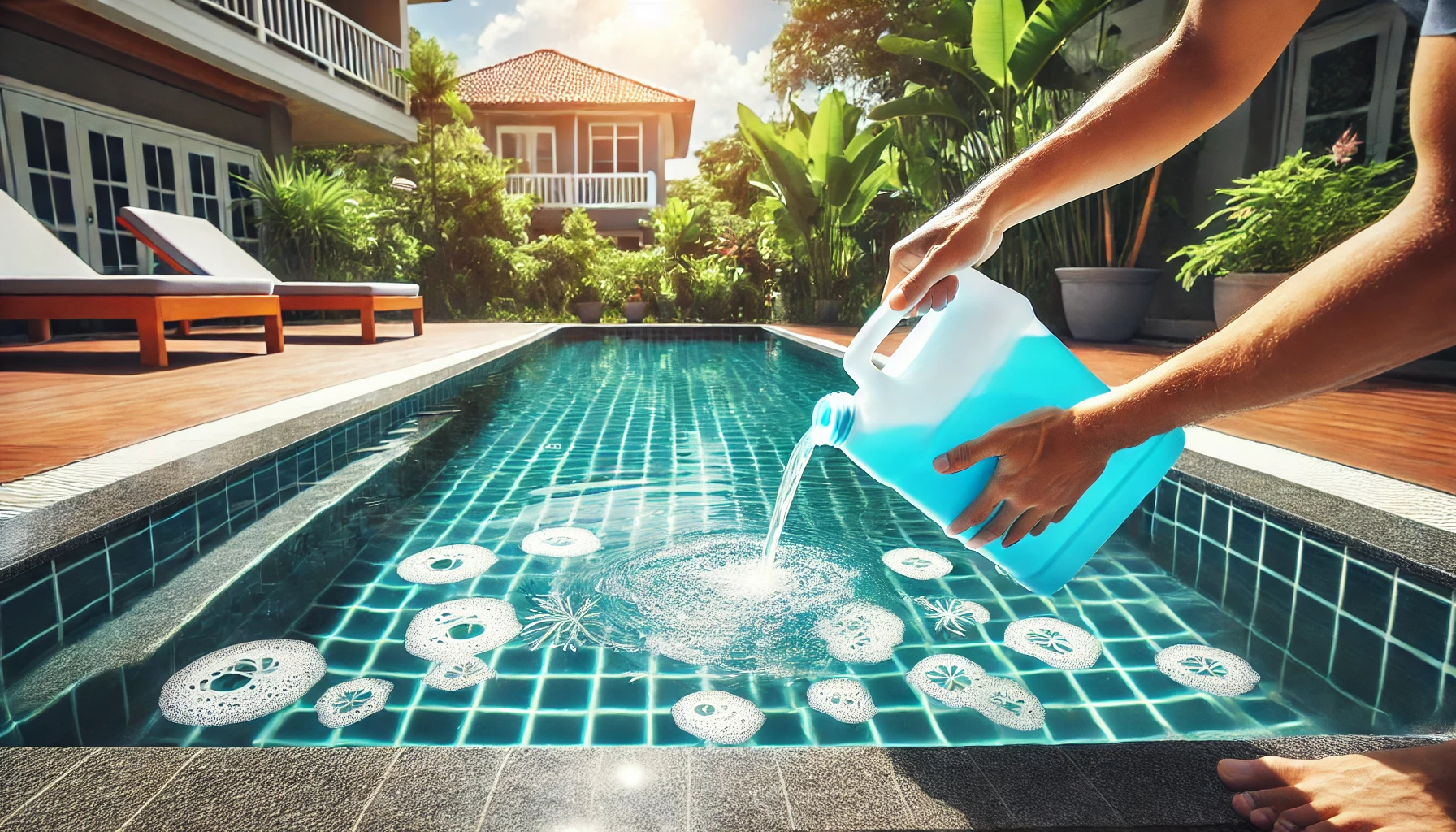Maintaining a clean and safe swimming pool environment requires effective sanitation, with chlorine being the most common chemical used. For home pool owners, choosing between chlorine tablets and chlorine powder can be crucial depending on their pool’s size, usage, and maintenance preferences. This article offers a detailed comparison to help you determine which chlorine form is most suitable for your home pool.

Chlorine Tablets
Ease of Use and Consistency
Chlorine tablets are highly favored for their ease of use. They are typically placed in floating dispensers, skimmers, or automatic feeders, which slowly dissolve the tablets over time, providing a consistent and steady release of chlorine, which helps maintain an even chemical balance in the pool.
Longevity and Efficiency
One of the significant advantages of chlorine tablets is their longevity. They dissolve slowly, ensuring that chlorine is released gradually, which can be more efficient for maintaining long-term chlorine levels without the need for frequent reapplication.
Cost-Effectiveness
While chlorine tablets might initially seem more expensive, their slow-release formula means fewer applications, potentially making them more cost-effective over the long term, especially for larger pools that benefit from a steady chlorine level.
Chlorine Powder
Speed and Flexibility
Chlorine powder, or granular chlorine, acts much faster than tablets. It is often used for shock treatments to quickly raise the chlorine levels in the pool, which is particularly useful if the water has become significantly contaminated or after heavy pool usage.
Precision in Dosage
Using chlorine powder allows for precise adjustments to the pool’s chlorine levels. Pool owners can measure and add exactly the amount needed based on the current condition of the pool, which is ideal for addressing specific sanitation needs or fluctuations in water quality.
Storage and Handling
Chlorine powder requires careful handling and storage. It must be kept dry and cool, and safety measures should be strictly followed to avoid accidental inhalation or contact with moisture, which can lead to chemical reactions.
Head-to-Head Comparison
Application Ease
Tablets: More straightforward to use; less frequent monitoring required.
Powder: Requires more frequent and precise application, suitable for experienced pool owners.
Cost Over Time
Tablets: Higher initial cost, but potentially lower overall cost due to reduced frequency of use.
Powder: Lower initial cost, but may require more frequent use, especially in larger pools.
Suitability for Pool Size
Tablets: Ideal for larger pools due to their prolonged action.
Powder: Better suited for smaller pools or specific situations that require immediate chlorine adjustment.
Conclusion
The choice between chlorine tablets and chlorine powder depends largely on your specific pool needs and maintenance style. Tablets offer convenience and consistency, ideal for those who prefer less frequent pool maintenance. In contrast, powder provides flexibility and fast action, suitable for quick adjustments or when immediate high chlorine levels are necessary.


